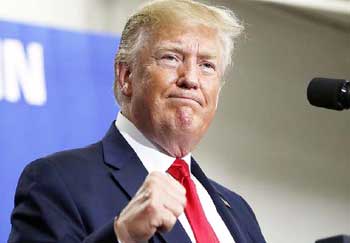Viral MSNBC exchange sparks debate on U.S. economic policy, government earnings, and shutdown blame game
Washington, November 11: U.S. Treasury Secretary nominee Scott Bessent is making headlines after a viral MSNBC segment in which he firmly corrected claims that Washington’s $20 billion currency swap with Argentina amounted to a bailout.
In a sharp exchange with an anchor, Bessent — known for his global investment background — emphasized that the swap agreement was designed to protect U.S. dollar liquidity and generate returns, not to subsidize Argentina’s struggling economy.
“This isn’t a bailout — it’s a swap line structured for profit. The U.S. earns on interest differentials, collateral, and stability spreads. We’re not giving money away; we’re earning on it,” Bessent said during the interview.
The clip quickly went viral across social media platforms, amassing millions of views under hashtags #ScottBessent and #MSNBC, with users praising his clarity and financial expertise.
💬 Political Context
Bessent’s remarks come amid partisan tensions over the federal government’s funding standoff, with the Republican nominee subtly attributing recent shutdown risks to Democratic fiscal management.
“The problem isn’t swaps with allies — it’s unchecked domestic spending,” he said, echoing broader GOP concerns about inflation and deficit growth.
Democratic lawmakers pushed back, calling Bessent’s framing “oversimplified,” while several economists agreed that the swap line serves as a stabilizing financial tool in emerging markets where dollar access is strained.
🌎 About the $20B Argentina Currency Swap
The deal, announced earlier this month, allows Argentina’s central bank to temporarily exchange pesos for U.S. dollars to stabilize domestic reserves.
While critics initially labeled the move a “hidden bailout,” Bessent explained that it functions much like short-term repo operations — profitable and collateral-backed for the U.S. Treasury.
Financial analysts note that the program strengthens the U.S. dollar’s global influence while maintaining market control amid shifting BRICS trade policies.
📊 Public & Market Reaction
Following the interview, X (formerly Twitter) and YouTube feeds flooded with clips of Bessent’s confident explanation, many praising him as “the most financially literate Treasury pick in years.”
Economists highlighted that such swap lines — previously extended to allies like Japan and South Korea — often result in net gains for the U.S. Treasury, not losses.
Markets reacted mildly, with Treasury yields steady and the dollar index holding firm, signaling confidence in the U.S. financial framework.
















